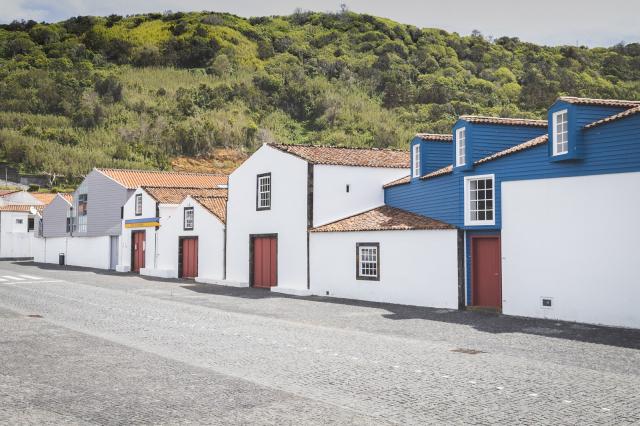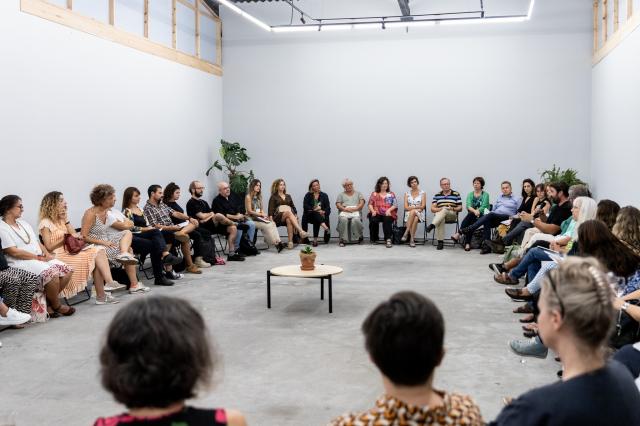Autor: Paulo Faustino
In the Azores there are about 500 individuals who live on the street, but have a place to sleep, and around 100 people who have no place to live or sleep, according to the study "On the Fringes - Homelessness in the Azores", carried out by Novo Dia Association in 2020. However, since then, the latter number has increased, i.e., the number referring to those who actually live and sleep on the street.
This was one of the main conclusions of the meeting held by the Azores Economic and Social Council (CESA) to address the issue. The meeting was attended, among others, by Henrique Joaquim, executive manager of the National Strategy for the Integration of Homeless People (ENIPSSA), and Isabel Baptista, member of the European Observatory on Homelessness of FEANTSA – European Federation of National Associations working with the Homeless Population, and Fernando Diogo, who leads CESA's Permanent Specialized Commission on Social Sectors.
Most of this socially disadvantaged public is found in Ponta Delgada, with 73 homeless people concentrated in this city alone.
"It was very clear at this meeting that, from 2020 onwards, we have seen in the city of Ponta Delgada a clear increase – corroborated by the field technicians that we had with us – in the number of people on the streets," stressed Diogo, referring to the need to update this survey.
Such increase, according to the university professor, is associated with the consumption of new psychoactive substances (synthetic drugs) and a "very strong" pressure on housing in Ponta Delgada.
In fact, as he noted, if there are more or less diversified homeless profiles throughout the country, "unfortunately, when it comes to the Azores, and especially in Ponta Delgada, there is an association with mental illness in the first place. On top of mental illness, there is the problem of addiction, be it to a drug, especially synthetic drugs, or to alcoholism in the case of the elderly.
The truth is that the impact of synthetic drugs is a major concern in the Region. As Fernando Diogo states, "just think, for example, that every week, according to the information we have, a new synthetic drug is circulating in the world and that two of the new synthetic drugs that have emerged in the meantime were identified for the first time in the Azores.”
To fight homelessness in the Azores, the specialist firstly recommends the implementation of the Home First program. Diogo emphasizes that this program is "more effective" than the one that has been adopted in the archipelago so far, the Step-by-Step program.
Home First consists, briefly, of the immediate placement of a homeless person in a home, while Step-by-Step involves working on skills with these people, until the time comes for them to become autonomous "and go to their own home".
"The institutionalization process has its place, but it's a place that clearly should be secondary," he said.
The Economic and Social Council is expected to present its conclusions and recommendations on this matter at its March plenary, and then forward them to the Regional Government and the Regional Assembly.
The study "On the Fringes – Homelessness in the Azores" presented at CESA was prepared by researchers Paulo Vitorino Fontes, Hélder Rego Fernandes and Lídia Canha Fernandes.
City Council eceives 106 million from the RRP for housing
The Ponta Delgada City Council (CMPD) – whose president, Pedro Nascimento Cabral, participated in the CESA meeting, along with councilwoman Cristina Canto Tavares – will be able to access 106 million euros (ME) under the Recovery and Resilience Plan (RRP) to address its Local Housing Strategy and, more precisely, the housing problem of 759 families and citizens in situation of social exclusion.
"We applied for a program, under the RRP, that allows us to access a fund of about 106 million euros to run until 2026; therefore, we are working hard on this project that will allow us to build several homes in the municipality, in order to solve the housing gaps existing for many families, including for citizens who live in social exclusion,” the mayor stressed in a statement to journalists.
Nascimento Cabral recalled that the CMPD has an ongoing strategic program to combat poverty and social exclusion, as well as started the procedures for the program "Home First", with three hosting properties.





